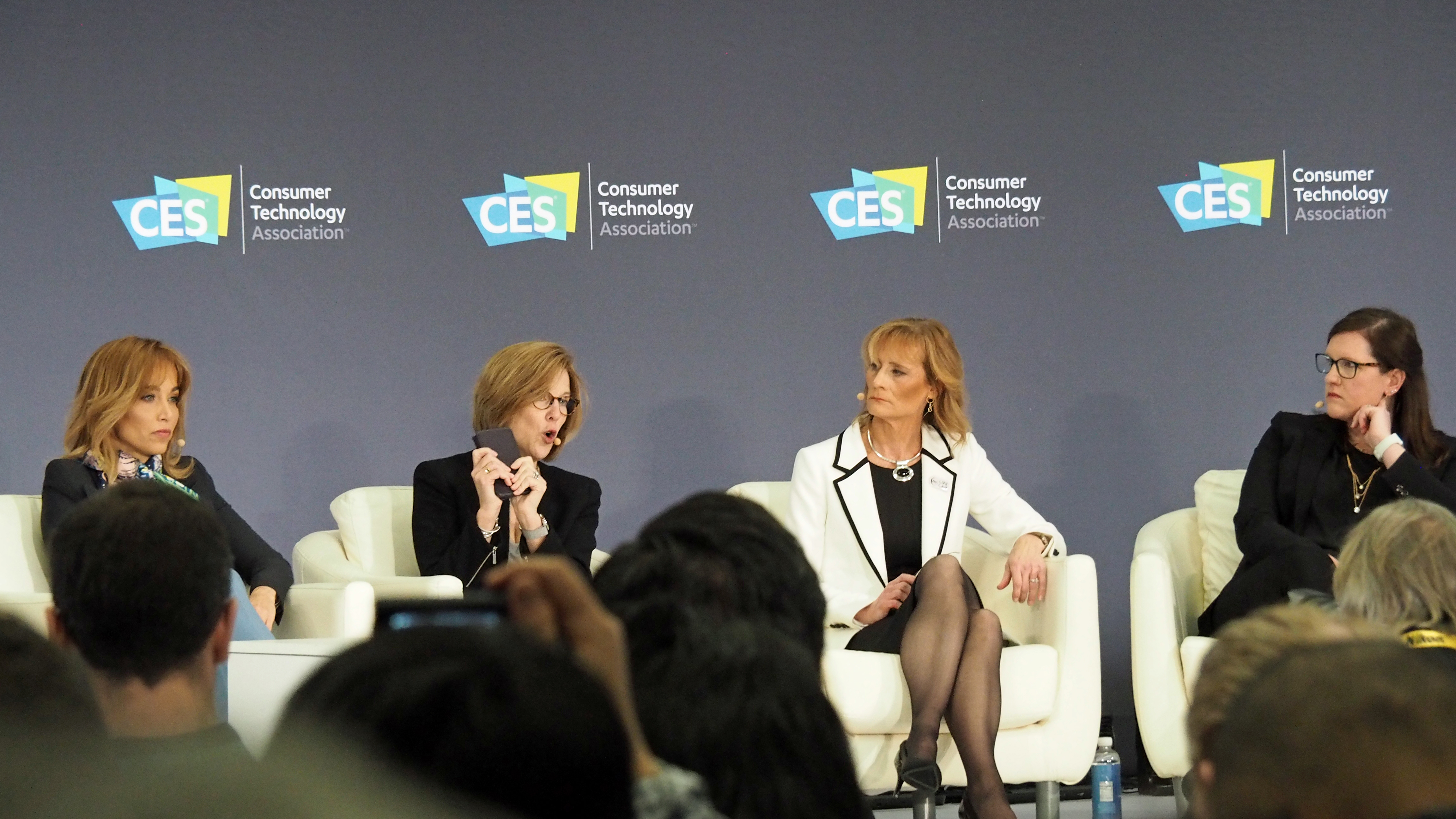Why is Apple finally back at CES after 30 years? Privacy
Apple and Facebook face off on privacy panel

LAS VEGAS — Apple returned to CES for the first time in 28 years, but it wasn't to show off a new device. (The Cupertino company saves its big reveals for its own events.) The reason for Apple's presence here was to take part in a major theme at this year's CES — data privacy, and what tech companies are doing (or not doing) to protect their users.
The setup was a panel featuring a roster of privacy chiefs, including Apple's senior director of privacy, Jane Horvath, and Facebook Chief Privacy Officer Erin Egan, who both talked about the ways they allow users to opt into and out of sharing data with their respective companies and outside third parties. But Federal Trade Commissioner Rebecca Slaughter, also on the panel today (Jan. 7) said consumers shouldn't be expected to bear the brunt of the responsibility for protecting their data.
Slaughter declined to pinpoint a specific company's failings, but said that not enough is being done to safeguard user data industry-wide.
"Even if consumers can walk through a privacy checkup," she said, alluding to Facebook's latest privacy features, "the amount of information that you have to process is untenable for most people.
"I'm a relatively well-educated person who specializes in privacy and I can't possibly figure out all the things that are being done with my data. The collectors and stewards of data have the responsibility to minimize what's collected, minimize what's retained, limit what's shared."
Facebook vs. Apple
The two privacy chiefs were almost surprisingly diplomatic when discussing (or choosing not to discuss) their competitors, despite the fact that Apple CEO Tim Cook has used choice words to describe Facebook's handling of user data in the past.
"I don't want to opine on what my competitors are doing," Apple's Horvath said.
Sign up to get the BEST of Tom's Guide direct to your inbox.
Get instant access to breaking news, the hottest reviews, great deals and helpful tips.
Facebook's Egan described the social media company as "privacy-protective" and said the network minimizes data collection as much as possible.
"We collect the data we need to serve people and to serve relevant advertising," Egan said. "We adhere to the concept of data minimization. You can offer a privacy-protective ad business model, and we do."
Neither the panel moderator nor Egan's fellow panelists — including Horvath and Slaughter — didn't push back on Egan's statements. But every mention of Facebook's "privacy by design" philosophy elicited audible murmurs and snickers from the audience. After all, last year Facebook was slapped with a $5 billion fine for violating a 2012 FTC consent decree that mandated the company be transparent with its handling of user data.
None of the panelists mentioned today's FBI request to Apple to unlock two iPhones related to a shooting in Pensacola, Fla. Horvath eluded to the request, which has come up before in past shootings and led to a showdown with the FBI back in 2016, when discussing Apple's commitment to end-to-end encryption.
"We’ve helped in solving many cases," Horvath said. "None of us want that kind of content on our platform. Building backdoor encryption is not the way we’re going to solve those issues."
Slaughter agreed. "I'm really sensitive to the desire for a backdoor for good, legal law enforcement reasons," she said. "But you can’t create a backdoor for the good guys that can’t also be used by the bad guys."
Be sure to check out our CES 2020 hub for the latest news and hands-on impressions out of Las Vegas.
Caitlin is a Senior editor for Gizmodo. She has also worked on Tom's Guide, Macworld, PCWorld and the Las Vegas Review-Journal. When she's not testing out the latest devices, you can find her running around the streets of Los Angeles, putting in morning miles or searching for the best tacos.
